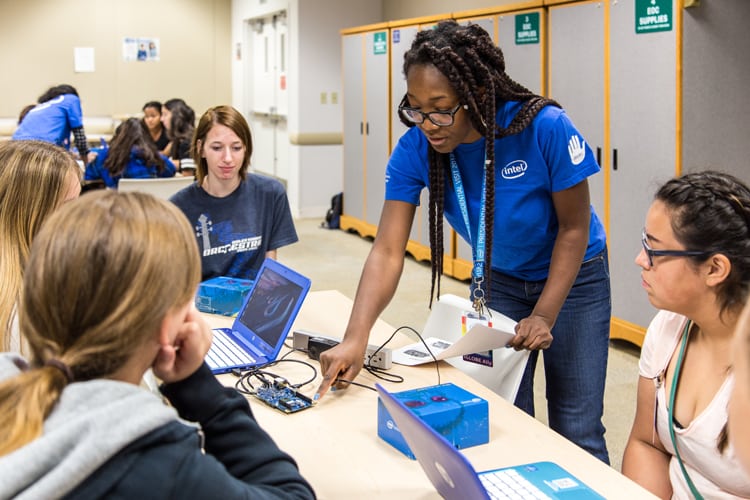Arizona voters, regardless of political party, continue to believe that teacher salaries and funding for schools is below where it needs to be. And, for the fourth consecutive year, voters indicated that education is the top issue facing our state – behind immigration, healthcare and the economy. The questions were asked of 600 likely voters statewide in a poll conducted on behalf of Expect More Arizona in December 2018 by HighGround, Inc.
Asked to rate a list of items in terms of funding priorities for education, improving the performance of lower performing schools and increasing teacher salaries were highest rated. Rounding out the top five were: making Arizona’s public colleges and universities more accessible and affordable; maintaining funding for career and technical education; and smaller class sizes. Even with last year’s commitment to increase teacher pay 20 percent by 2020, increasing teacher pay outpaced other P-20 education issues as the thing voters would be most willing to pay more in taxes to support.
While voter support for education has remained high, the policies and investments needed to drive meaningful change haven’t materialized. The Arizona Education Progress Meter was developed three years ago to provide a clear picture of where we stand today and to outline broadly supported education goals the state aims to meet by 2030. While the state has gained ground on all eight indicators, it’s clear we won’t meet the long-term goals or close persistent achievement gaps without significant investments in the entire education continuum, coupled with effective instruction, policy, and strategy implementation.
Along with additional funding and meaningful policy changes, it will take local communities leading the way to significantly move the Education Progress Meter indicators. Knowing this, the ASU Decision Center for Educational Excellence, the Center for the Future of Arizona and Expect More Arizona collaboratively developed a new advanced feature of the Education Progress Meter which readily provides county, municipal, both public and charter school district, and individual school level data that matters most to local communities. This localized data, which was collected and analyzed by ASU’s Morrison Institute for Public Policy, complements existing statewide data to provide a more comprehensive look at educational achievement and enables local decision makers to best direct attention and resources.
Expect More Arizona will call on its network of organizations and individuals to work together to move the following priorities forward in 2019:
• Provide stable, long-term investments in education to help accelerate toward our shared Progress Meter goals, including funding that will:
• Provide competitive compensation, professional development, and essential materials to deliver an excellent education to all students; and
• Advance access to postsecondary education, address workforce needs, and strengthen our community colleges, universities, and workforce.
• Identify and support student needs, including mechanisms to address the achievement gap.
• Advocate for high academic standards and clear, consistent, and equitable accountability systems for our students, educators, and schools.
• Accelerate student awareness of, preparedness for, and involvement in career and college pathways.
“Education is the key to unlocking the potential of individuals and communities in our state. The success of every student is vital to our state’s economic prosperity and civic health and everyone’s quality of life,” says Christine M. Thompson, president and CEO of Expect More Arizona. “That is why Expect More Arizona will work with our partners and network of supporters to advance policies that help ensure all students receive an excellent education every step of the way.”




